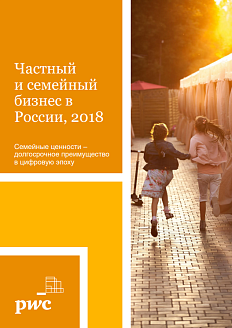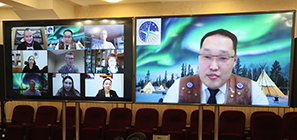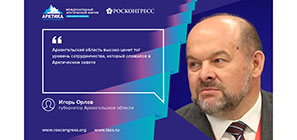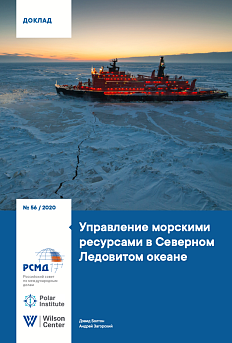Summary session «State Policy on Recruiting Personnel to Work in the Arctic» within the framework of the Arctic Talent Acquisition Conference, which took place on November 15-16, 2021 in Arkhangelsk.
KEY FINDINGS
With the development of the Arctic by big investors, it is necessary to ensure that the traditional way of life of Indigenous Peoples of the North is preserved in the macro-region
«Forty peoples live in the territories of Siberia, the Far East, the Arctic, and half of our peoples mentioned, the small peoples of the Russian Federation, half of them live in the territory of the Arctic. For us, this is our home, and we see today what major economic changes are taking place in our territories. Together with you, the authorities, experts and scientists, we also see how the climate in our territories is changing. It is something new for all of us, with big challenges and great prospects for the development of our economy. We are directly involved in this process and in our daily work. Our Indigenous Peoples understand that even in this modern situation, we need to preserve our traditional way of life, our traditional customs, and, like our ancestors, apply our traditional knowledge», said Grigory Ledkov, Member of the Federation Council Committee on Federal Structure, Regional Policy, Local Government and Northern Affairs, and President of the Russian Association of Indigenous Peoples of the North.
«Of course, there are huge resources in the Arctic, and we have just heard what kind of transformation is in store for the Arctic, and reindeer herders are getting alone. There are so many interests here now, so many participants, and it completely changes how we use the region. On the one hand, it promotes the local market, but we also face serious problems and challenges. Our nomadic tribes, they are not in such a strong position to develop, to use local resources», said Anders Oskal, Secretary General at the Association of World Reindeer Herders, and Executive Director of the International Centre for Reindeer Husbandry in Kautokeino, Norway.
«Training of personnel for the Arctic must be interdisciplinary. A fundamentally new level of specialists must be trained. But, as well as these new specialists who are associated with both digital and artificial intelligence, automation, robotization of all processes, we cannot forget about the traditional way of life and the preservation of languages, traditions and economic activities of indigenous and minority peoples», said Elena Kudryashova, Rector of the Lomonosov Northern (Arctic) Federal University.
There is a need to intensify the training of skilled and sought-after personnel in the Arctic, in cooperation between government, business and academia
«The staffing of the Arctic zone is a very big problem. Over these years, we have lost almost one-third of the labour force population, the labour resources of the Arctic zone. We considered at the Arctic and Antarctic Council that there is a shortage of about 250 thousand human resources. This is a serious problem today. Without staff, without staff only on a rotational basis, we can’t develop the Arctic. This is a complex problem. Systematic work must be done», said Alexander Akimov, Deputy Chair of the Federation Council Committee on Federal Structure, Regional Policy, Local Government and Northern Affairs of the Federation Council of the Russian Federation.
PROBLEMS
Existing support measures are not sufficient to support small and medium-sized businesses in the Arctic
«Entrepreneurial activity, especially that of small and medium-sized businesses, is traditionally weaker in the Arctic than in the country as a whole. And to correct this, four laws were adopted to support entrepreneurship in the Arctic. However, all the laws concern investors, while already existing businesses, like the entrepreneurial activities of indigenous communities, are not considered there», said Olga Epifanova, a representative of the executive authority of the Komi Republic in the Federation Council of the Russian Federation.
The personnel produced by educational institutions do not always correspond to the specialities that are in demand in the Arctic
«The mismatch between the specialization of highly qualified specialists and the needs of today’s development of our national economy sectors, the enterprises that operate today in the Arctic zone. We have to correct this. It was a very reasonable proposal because according to the budget and the direction of universities, we have to take these factors into account. This is one of the trends, because how many economists or lawyers, or other specialities we have been fond of lately, can we graduate?» said Alexander Akimov, Deputy Chair of the Federation Council Committee on Federal Structure, Regional Policy, Local Government and Northern Affairs of the Federation Council of the Russian Federation.
SOLUTIONS
Non-traditional educational formats will allow for the training of Arctic indigenous people in sought-after professions
«We are running a project of nomadic schools called „Children of the Arctic“. It is a project of the Arctic Council. Together with our educational centres and the relevant federal ministries, we are also implementing this project. I am sure, over the next two years, we will demonstrate our experience in the work of these educational centres for our Arctic nomads to the maximum extent possible», said Grigory Ledkov, Member of the Federation Council Committee on Federal Structure, Regional Policy, Local Government and Northern Affairs, and President of the Russian Association of Indigenous Peoples of the North.
«The non-profit organization Kupol Social Development Foundation (founded by the Chukotka Mining and Geological Company, a joint-stock company of the Kinross Gold Corporation, Canada) also contributes to the social and economic development of the region and promotes projects that are significant to Chukotka residents. One of the directions is education. Thus, the Kupol Foundation’s start-up project was establishing a bone carving workshop for the community of sea hunters in Lorino. Seven workplaces were equipped, and seven craftsmen received qualifications and started working», said Natalya Slugina, Deputy Head of the Chukotka Autonomous Okrug Governor’s Office, and Head of International Cooperation and Arctic Affairs of the Chukotka Autonomous Okrug Governor’s Office and Government.
For more analytical materials on the Arctic agenda, see the Roscongress Information and Analytical System roscongress.org/en/knowledge/arktika/materials/.
The material was prepared by the information partner of TASS.






